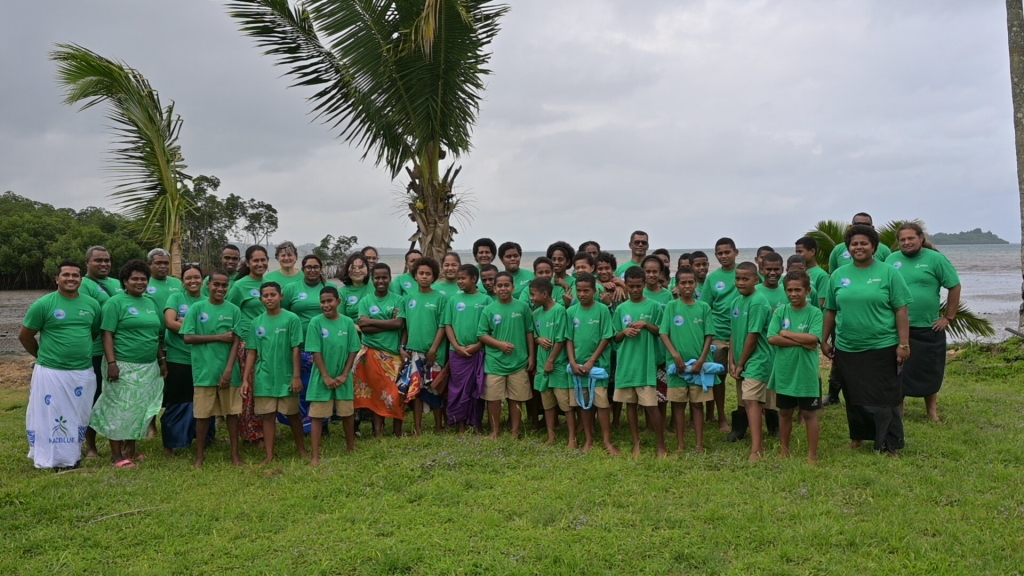
26 July 2024, Suva Fiji - More than thirty students of Ro Delainamako Primary School can hold their heads high with great sense of pride having contributed to Fiji’s goal of planting 30 million trees in 15 years.
Year 7 and Year 8 students of the Naboro-based primary school participated in a mangrove restoration programme on Wednesday 24 July 2024 to commemorate World Mangrove Day where they were taught the importance of mangrove ecosystems, impact of mangrove degradation and how to conserve mangrove ecosystems.
The awareness session was followed by a mangrove restoration activity at Kalokolevu Village.
Head Teacher, Ms Vatiseva Cirinainima said the programme will shape students to be responsible citizens.
“I know for the students that are part of the programme, from now onwards they are going to be very careful in how they look after their surroundings, keeping their environment clean and not dumping their rubbish anywhere, anyhow,” Ms Cirinanima shared.
“The children that are under our care are our future generations. Once we instil in their minds the importance of looking after their part of maintaining the environment, they will carry it with them for the rest of their lives,” said Ms Cirinainima, who added that it’s important to include the younger generation in supporting conservation efforts of Fiji’s national commitments.

The Government through the Department of Forestry has set-out a goal of planting 30 million trees in 15 years. According to the Department of Forestry, Fiji has over 46,600 hectares of mangrove forests.
Held at the Kalokolevu Village Hall, the presence of community leaders was an added boost to the learning experience.
Kalokolevu Village Turaga ni Yavusa Seveci Naisilisili said the crucial role of mangroves in human lives cannot be denied and therefore the onus is on individuals to protect mangroves.
“Mangroves bring life, prevent soil erosion and is an important habitat for seafood such as nuqa (spinefoot rabbitfish) and mud-crabs,” Naisilisili said.
The United Nations Educational, Scientific and Cultural Organization (UNESCO) has estimated that more than three-quarters of the world’s mangroves are under threat along with all the aquatic and terrestrial organisms that depend on them.
“In 2019, the village started planting 300 trees to combat the impacts of climate change. In March 2021, the then Minister of Environment commissioned the Kalokolevu Biodiversity Park as the first biodiversity park in Fiji. To date, we have planted over 4,000 trees,” added the 70-year-old Naisilisili.
He said the inclusion of the younger generation in mangrove planting is a great boost to the village tree-planting initiatives.
“After today, Kalokolevu Village will continue to plant mangroves, all because of our fight against climate change,” he concluded.
The World Mangrove Day commemoration held annually on 26 July was jointly organised by the Itaukei Affairs Board in collaboration with the Korean International Cooperation Agency (KOICA) through its KOICA Fiji Alumni Club and the Management and Conservation of Blue Carbon Ecosystems (MACBLUE) project.
The MACBLUE project is jointly implemented by the Pacific Community, Secretariat of the Pacific Regional Environment Programme (SPREP) and the German Agency for International Cooperation. It targets the protection and rehabilitation incentives for coastal carbon sinks in the Pacific.